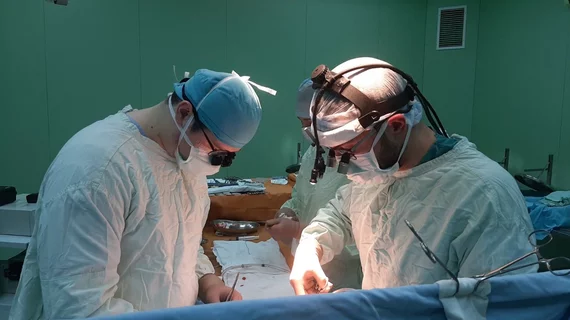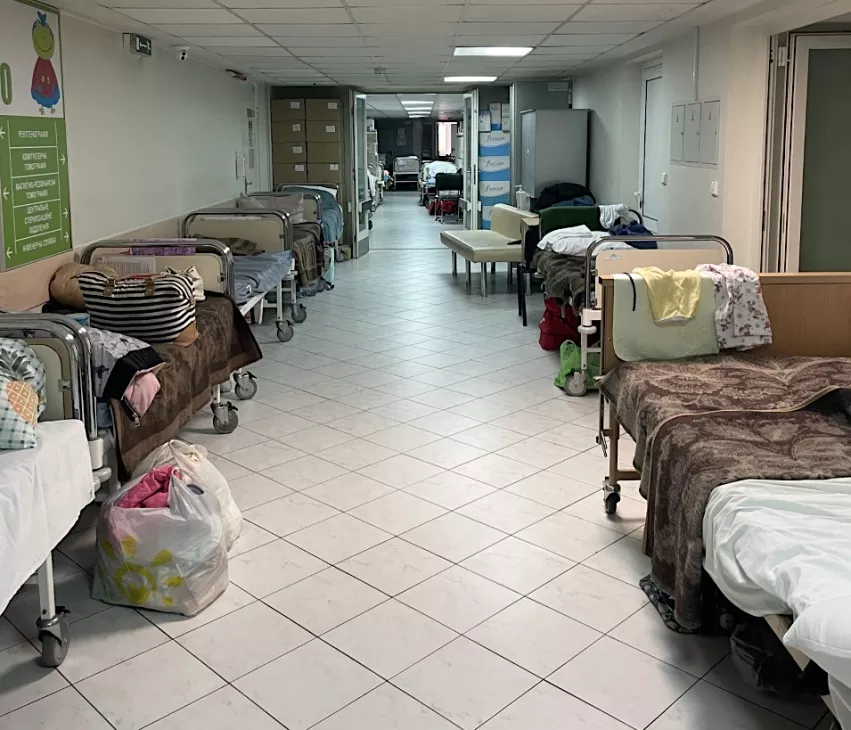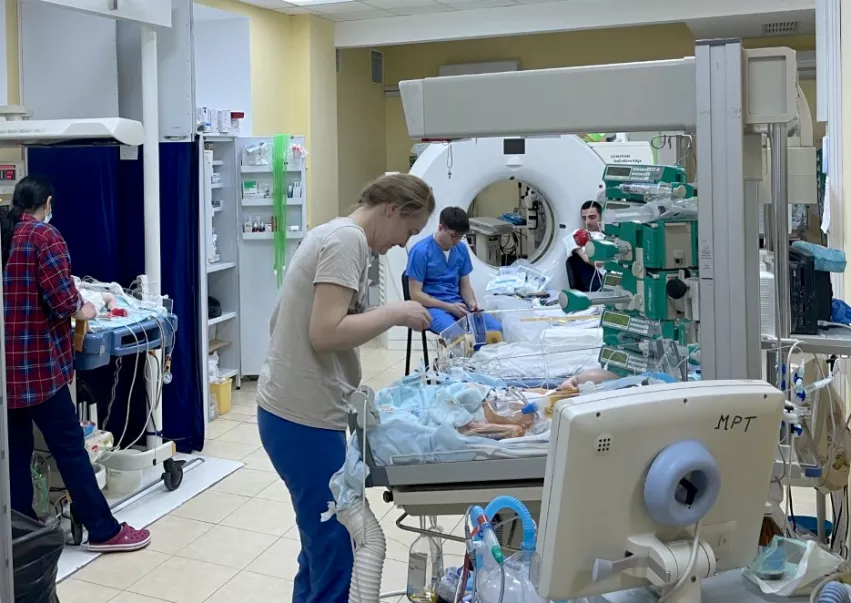War in Ukraine has not stopped congenital heart surgeries in Kyiv
Congenital heart surgeon Oleksandr Yachnik of the Scientific Practical Children's Cardiac Center in Kyiv, Ukraine, has continued to do heart surgeries on pediatric patients as Russian forces attack the outskirts of the city. He spoke with Cardiovascular Business about his experiences in the war-torn city and how his hospital is continuing its mission to treat congenital heart patients despite the front lines of the fighting being less than 10 miles away and the city being under Russian bombardment.
“Kyiv it is getting increasingly less safe for children, since the capital remains to the Russians priority so far,” Yachnik said. “The majority of families that have children with heart defects have already managed to leave for western regions of Ukraine and it would be insane to return to Kyiv for surgical treatment.”
For this reason, the hospital is in the process of moving its congenital surgical services to Lviv, a city about 350 miles west of Kyiv closer to the Polish border.
“We have been busy here for the past few days, trying to transfer at least the pediatric department to a fellow clinic in Lviv,” Yachnik explained. “Lviv is a relatively safe place as for now, so we would be able to continue admitting patients here.”
In war, he added, everyone needs to do their part to help the greater good of the country. He remans focused on treating young cardiac patients who need his help to survive.
"This is my part, my contribution to my society’s wellbeing. War rages in our country these days, but in order for everything to function at it’s best I stay at my place and do my job," Yachnik said.
After moving to a less hostile environment, Yachnik and his colleagues will also be able to treat other pediatric congenital patients with serious conditions who are stable now, but will quickly deteriorate over the next couple months if they do not receive the surgical care then need.
As of March 15, he said his hospital has not yet admitted any wounded adults. So far, Yachnik said it appears military clinics have been able to meet the demand so far. However, Ukraine's largest children's hospital located just a block away, Okhmatdyt National Children's Specialized Hospital, has been receiving a steady stream of adult and pediatric civilian casualties for several days. See images of the casualties updated daily on Okhmatdyt's Instagram page www.instagram.com/ohmatdyt.
Supplies are still reaching Kyiv hospitals and clinical areas are now in the basement
Ukrainian defense forces so far have been able to prevent the Russians from surrounding the Kyiv, so the hospitals are not cut off from supplies and there is still travel between the city and other parts of the country that are not occupied by the Russians. This has allowed humanitarian aid shipments to reach the hospitals.
“We are not short of supplies as for the moment, thanks to our volunteers as well as foreign humanitarian aid,” Yachnik said.
He said Scientific Practical Children's Cardiac Center staff have basically lived at the hospital for the past couple weeks to ensure they can care for patients and remain available. The streets of the city are under curfew at night and there are regular air attacks on the city. The living quarters for both staff, patients and their families are now in the basement of then building to protect them from bombing, missile attacks and shelling. Yachnik also said all clinical operations of the hospital are now located in the basement.
Moral remains high despite the Russian attacks on the city
“As for the mood — we are staying strong, keeping optimistic and are trying to keep busy as much as we can,” Yachnik said. “So they say, an idle mind is the devil`s workshop and it seems to be true. I myself have noticed that as you keep yourself busy doing your job, trying to be as helpful as possible, do your best to be supportive to your colleagues and dear ones, it is much easier to stay optimistic and keep in mind what you are struggling for. I think I can state that in general, all the civilian people staying in Kyiv these days are sharing the same attitude.”
He said this appears to be true for all the people he has seen who are staying in Ukraine and are consciously refusing to leave Ukraine during this time.
"I have never seen before such unprecedented sense of community, of interconnection between every person, when all act as one, helping each other in every possible way, doing a daily exploit, forgetting any kind of disagreements in the face of common threat posed by Russia," Yachnik explained.
He asked that clinicians outside Ukraine to share stories and photos like his to make sure the rest of the world understands what is going on.
“Driving attention of the world community to this war and its aftermath is something that we desperately need. Light must be shed on these atrocities so this must not happen ever again. The more people acknowledge what is going on in Ukraine, the greater the chances that we would be able to overcome this,” Yachnik said.
Doctor at the children's hospital was shot by the Russians
Marina Kalabina, an anesthesiologist with the Center for Pediatric Cardiology and Cardiac Surgery in Kyiv, was killed by a bullet wound as she attempted to drive her wounded nephew to the hospital. Viktor Liashko, Ukraine’s Minister of Healthcare, announced the news on Facebook. Read more
Healthcare news related to the Russian war in Ukraine:
Cardiac hospitals still treating patients as war in Ukraine continues
PHOTO GALLERY: Radiology images of Ukrainian trauma patients wounded in war
U.S. government, American Hospital Association warn of potential Russian cyber attacks
Radiologists in Ukraine helping the war effort as Russia continues to attack
Radiology leaders speak out in support of Ukraine
Cardiologists across the world share support for Ukraine as violent war continues
War in Ukraine: Doctor from pediatric cardiology clinic shot dead



